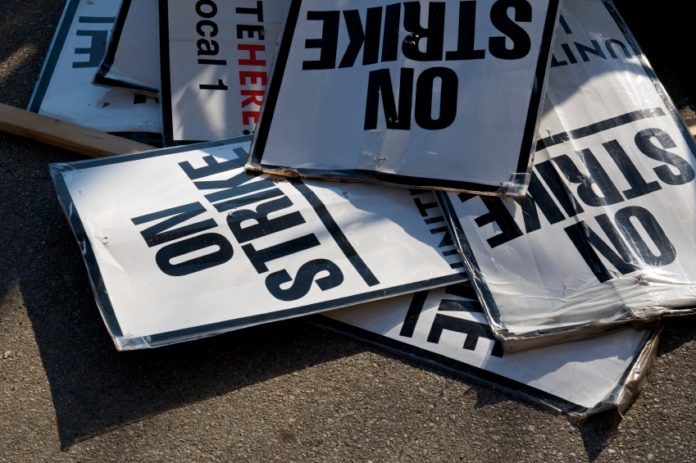In a sharply worded letter to congressional leaders, Teamsters General President Jim Hoffa complained bitterly this past Tuesday about a “last minute deal to give United Parcel Service (UPS) a $2 billion bailout to relieve the company of negotiated pension obligations” under a pension reform plan working its way through Congress.
Saying such funds would offset Big Brown’s pension payments, Hoffa seemed to express anger that a deal would lessen the pain UPS management and shareholders would feel funding its pension obligations on their own.
When asked about the “bailout” language contained in Hoffa’s letter, UPS Spokeswoman Kara Gerhardt Ross denied that any “bailout” was in the works and that the multi-employer pension reform under consideration by Congress will not change UPS’s “contractual obligation and no policy will change our commitment to our people.”
Ross added that in 2007 “UPS paid $6.1 billion in a cash lump payment to the Central States Pension Trust in order to cover our commitment to protect our 45,000 employees under the plan and their pensions”…“started a new Teamster-UPS Jointly Trusteed Single Employer Plan that is completely funded by UPS today”…and that “UPS took an additional $1.7 billion in Central States’ liability (former UPS pension plan) to support the plan and more importantly our people under it.”
UPS expressed surprise that the Teamsters were calling these contributions bailouts or a special interest earmarks affirming instead that “UPS is standing by its contractual commitment to our union employees under the collective bargaining agreement and has advocated to protect our employees’ benefits during this process.”
So why is Hoffa so upset?
Perhaps it has something to do with the thinly veiled class warfare rhetoric that keeps Big Unions – and Big Union Bosses – in power.
In his closing salvo against UPS in his letter to Congress, Hoffa thought it important to point out that UPS is a Fortune 50 company with sales in excess of $100 billion a year – and that pension reform would somehow lessen the impact that union demands would have on Big Brown’s bottom line.






























